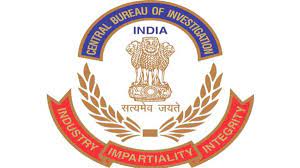CURRENT AFFAIRS
Get the most updated and recent current affair content on Padhaikaro.com
General consent to CBI
- IAS NEXT, Lucknow
- 12, Nov 2021

Reference News:
The Supreme Court has expressed concern over a submission by the CBI that since 2018, around 150 requests for sanction to investigate have been pending with eight state governments that have withdrawn general consent to the agency.
Next Analysis-
The CBI had filed the affidavit after the court inquired last month about the bottlenecks it faced, and the steps it had taken to strengthen prosecutions.
Which states have withdrawn general consent, and why?
Eight states have currently withdrawn consent to the CBI: Maharashtra, Punjab, Rajasthan, West Bengal, Jharkhand, Chhattisgarh, Kerala, and Mizoram. All except Mizoram are ruled by the opposition.
Centre’s response:
- State governments do not have any “absolute” power to keep the Central Bureau of Investigation (CBI) from investigating crimes inside the State.
- Not even the Union government”, has the authority to rattle the autonomy of the premier agency to conduct investigations.
- Also, withdrawal of general consent would not stand in the way of constitutional courts entrusting the CBI with the cases “where it is found that the State Police would not effectively conduct a fair and impartial investigation”.
- Besides, the CBI was empowered to probe cases concerning any of the Central subjects enumerated in the Union List in the Seventh Schedule of the Constitution.
Why is consent necessary?
The CBI is governed by the Delhi Special Police Establishment Act that makes consent of a state government mandatory for conducting investigation in that state.
There are two kinds of consent:
Case-specific and general– Given that the CBI has jurisdiction only over central government departments and employees, it can investigate a case involving state government employees or a violent crime in a given state only after that state government gives its consent.
- “General consent” is normally given to help the CBI seamlessly conduct its investigation into cases of corruption against central government employees in the concerned state.
What does withdrawal mean?
It simply means that CBI officers will lose all powers of a police officer as soon as they enter the state unless the state government has allowed them.
- The decision means the CBI will now have to get consent from the state government for every case it registers in Maharashtra.
Under what provision can general consent be withdrawn?
In exercise of power conferred by Section 6 of the Delhi Special Police Establishment Act, 1946, the state governments can withdraw the general consent accorded.
Can withdrawal mean that the CBI can no longer probe any case?
No. The CBI would still have the power to investigate old cases registered when general consent existed. Also, cases registered anywhere else in the country, but involving people stationed in states which have withdrawn consent, would allow CBI’s jurisdiction to extend to these states.
Calcutta High Court verdict:
Calcutta High Court recently ruled in a case of illegal coal mining and cattle smuggling being investigated by the CBI, that the central agency cannot be stopped from probing an employee of the central government in another state. The order has been challenged in the Supreme Court.
- In Vinay Mishra vs the CBI, Calcutta HC ruled in July this year that corruption cases must be treated equally across the country, and a central government employee could not be “distinguished” just because his office was located in a state that had withdrawn general consent.
- The HC also said that withdrawal of consent would apply in cases where only employees of the state government were involved.